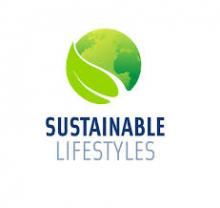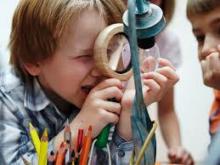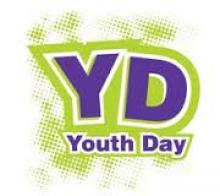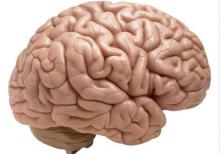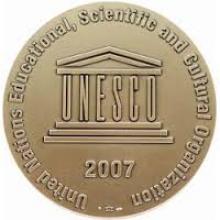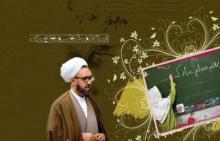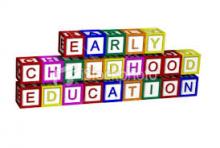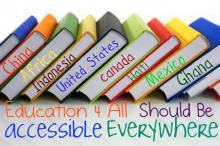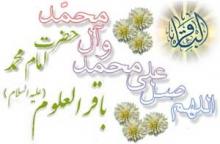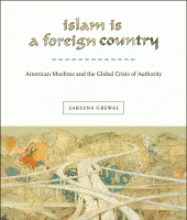Notes
Sustainable Lifestyles
Submitted by mohtava on Mon, 06/01/2015 - 15:45Globalization has made consumers powerful actors in our world economy. Our daily choices as consumers affect the lives of workers in distant places and the way people live. Sustainable consumption means buying goods and services that do not harm the environment, society, and the economy. Although it is predominantly an issue for high-income and emerging economies, consumption is an excellent entry point for teaching about sustainable development. Consumer education is practical, touching the daily lives of people near and far away. Local consumer action can have a global, social, economic, and environmental impact, both today and tomorrow.
Education for Sustainable Development (ESD)
Submitted by mohtava on Mon, 06/01/2015 - 15:42Education for Sustainable Development allows every human being to acquire the knowledge, skills, attitudes and values necessary to shape a sustainable future.
Paragon-Par Excellence for all Virtuous Youth
Submitted by mohtava on Sat, 05/30/2015 - 14:02By: Seyyed Ali Shahbaz Today the 11th of Sha’ban is celebrated every year in the Islamic Republic of Iran as “Day of Youth”.
Babies Can Think before They Can Speak
Submitted by mohtava on Wed, 05/27/2015 - 12:26Two pennies can be considered the same -- both are pennies, just as two elephants can be considered the same, as both are elephants. Despite the vast difference between pennies and elephants, we easily notice the common relation of sameness that holds for both pairs.
Researchers Find Brain Area that Integrates Speech's Rhythms
Submitted by mohtava on Mon, 05/25/2015 - 10:46An area of the brain that is sensitive to the timing of speech has been discovered by researchers.
Education for the 21st Century
Submitted by mohtava on Wed, 05/13/2015 - 11:57Since its creation in 1945, UNESCO’s mission has been to contribute to the building of peace, poverty eradication, lasting development and intercultural dialogue, with education as one of its principal activities to achieve this aim. The Organization is committed to a holistic and humanistic vision of quality education worldwide, the realization of everyone’s right to education, and the belief that education plays a fundamental role in human, social and economic development.
Martyrdom Anniversary of 'Ayatollah Morteza Motahhari'
Submitted by mohtava on Mon, 05/04/2015 - 15:07Morteza Motahari was born in Fariman village, 31st January, 1919. His father, Sheikh Mohammad Motahari who had completed his studies in Najaf was one of the leading clergies of Fariman.
Early Childhood Education
Submitted by mohtava on Wed, 04/22/2015 - 14:23Introduction
All children have the right to education - a right that is expressed in the Universal Declaration of Human Rights and the UN Convention on the Rights of the Child and defended by EI within the framework of its global action campaign for accessible, free quality public education for all. Early childhood education (ECE) must be seen as an integral part of this right
Education for All
Submitted by mohtava on Wed, 04/22/2015 - 13:50Introduction
One of the principal aims of Education International is to promote the right to education for all persons in the world. EI advocates for free quality public education for all. EI believes that education is a human right and a public good which should be accessible to all. It is the responsibility of public authorities to ensure that every child, youth and adult has access to high quality education appropriate to his or her needs. EI supports the Dakar Education for All (EFA) targets and the Millennium Development Goals (MDGs) agreed in 2000 and has been consistently campaigning for their achievement by 2015.
Characters common to all humans according to Imam Baqer (AS)
Submitted by mohtava on Tue, 04/21/2015 - 14:04- Imam Baqer (AS): Allah (SWT) has not allowed any human to ignore the following 3 characters;
The Experiences of Teachers Participating in the Overseas Schools Assignment Exam
Submitted by mohtava on Sun, 04/12/2015 - 15:05To gain some insight into the experiences of those teachers who
The Use of Educational Humor in the Process of Learning and Teaching: A Special Facilitator for Second Language Learners
Submitted by mohtava on Sun, 04/12/2015 - 15:02Research on educational humor during the past two decades demonstratesboth the role and the impact of humor on the processes of learning and teaching, especially in the area of second/foreign language learning. There are a number of theories giving different definitions and leading to a variety of strategies f
or the use of humor in the classroom.
The Nature of Comparative Research in Philosophy of Education: Faaraabee's Method
Submitted by mohtava on Sun, 04/12/2015 - 14:58Comparative research, from a philosophical perspective in
education, goes beyond the mere comparison of two ideas or subjects, and necessitates both judgment and critical analysis. Considering the complexities of the educational processes, doing comparative research in educational philosophy requires certain skills and conditions to be met.
The Status of NationalReligious Identity in High School Farsi Textbooks
Submitted by mohtava on Sun, 04/12/2015 - 14:55To discover the extent to which the subject of nationalreligious
The Effects of Quantitative and Qualitative Evaluation on Fourth Graders Anxiety
Submitted by mohtava on Sun, 04/12/2015 - 14:53The type of educational evaluation can affect anxiety among other
variables. That is why the Iranian educational system has recently adopted a new type of evaluation, called qualitative evaluation in contrast to the old quantitative approach. To show the difference
The Role of Student and School Variables in Reading Performance among Those Participated in PIRLS 2006
Submitted by mohtava on Sun, 04/12/2015 - 14:52To determine the role of student and school variables in reading
performance, the data on Iranian fourth graders who participated in
The Use of Emotional Regulation Strategies in Reducing Test Anxiety during Test Taking
Submitted by mohtava on Sun, 04/12/2015 - 14:49It is well known that the use of emotional regulation strategies can
Story of Muslim experience in America
Submitted by mohtava on Tue, 03/03/2015 - 15:18A second-generation Muslim American scholar recounts official treatment of Muslims as “outsiders.” The book makes fascinating reading.
Islamic Unity Week
Submitted by mohtava on Tue, 03/03/2015 - 15:15The Islamic Unity Week is marked between 12-17th Rabiul Awwal on the occasion of the Birth Anniversary of Prophet Mohammad SAW


